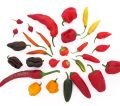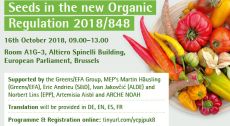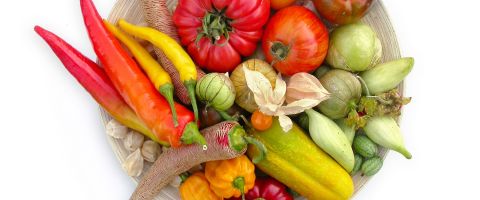Seeds in Organic Agriculture
Liberating Diversity in Organic Agriculture
Successful organic agriculture needs resilient seeds that are resistant to diseases, as it does not rely on synthetic inputs like chemical fertilisers, pesticides, and herbicides. However, European seed laws only allow the marketing of highly standardised varieties, which lack the genetic diversity necessary to allow adaption to disease resistance and local growing conditions.
The new EU Organic Regulation (2018/848), which enters into force in 2022, will help to address this problem by creating new rules for the marketing of organic plant reproductive material with a higher degree of diversity.

How to make organic plant breeding mainstream
9th November 2021: Organic plant breeders celebrated their 20th anniversary in Brussels to discuss with stakeholders and policymakers the necessary changes to boost organic plant breeding to support the European Green Deal Strategy and climate change adaptation. The Arche Noah team joint the conference to furthermore discuss the upcoming seed marketing legislation.
To read the full FiBL report click here.

The Vision
ARCHE NOAH advocated strongly for the new seed provisions in the EU Organic Regulation. We believe the new rules are a first step to freeing crop diversity from bureaucratic niches, reinstating the right of farmers to their own seeds, and bringing back regional and traditional varieties back to our fields, gardens, and tables – to the benefit of the environment and our diets!
The regulation introduces two new ways to market seeds that are suited to the needs of organic agriculture. First, the Regulation will enable organic farmers, breeders and seed savers to market “organic heterogeneous material” (OHM), such as populations and landraces. It was previously not possible (or only in exceptional cases) to market such seeds. From 2022, OHM can be sold across the EU after a relatively simple, free notification to the national seed authority. At ARCHE NOAH, we look forward to notifying and subsequently making available OHM in 2022! You can find an overview of the detailed rules on the marketing of OHM here.
Second, the regulation introduces the concept of “organic varieties suitable for organic agriculture”. These varieties are bred under organic growing conditions and therefore tailoured to low-input conditions. (In contrast, many seeds currently sold as organic were bred for conventional agriculture and only subsequently multiplied under organic conditions.) Following a seven-year “temporary experiment” during which such varieties will be evaluated, the process (DUS-criteria) for registering such varieties should be adapted to reflect their special characteristics.
The Reform Process
The European Commission proposed a new EU regulation on organic production and the labelling of organic products in 2014. After lengthy negotiations between the Commission, the Council and the European Parliament, the regulation was formally approved in 2018. Unusually, the provisions on seeds in the new regulation were not put forward by the Commission, but by the European Parliament. In spring 2017, ARCHE NOAH collected over 20,000 signatures within 14 days to secure the support of the Austrian Agriculture Minister for the new possibility to market diverse seeds.
The detailed rules on the marketing of OHM are set out in secondary legislation. ARCHE NOAH together with around 40 seed saving and organic breeding and farming associations from across Europe provided detailed input to the European Commission to ensure the new rules work in practice for diverse seeds and small and medium-sized actors, and so can deliver real benefits to organic farming and biodiversity in the future.

A Celebration of Diversity: Organic Seeds Conference 2018
On 16 October 2018, Artemisia Aisbl and ARCHE NOAH organised a conference at the European Parliament on “Seeds in the new Organic Regulation 2018/848”, with the support of the Green/EFA Group, and hosted by MEPs Martin Häusling (Greens/EFA), Eric Andrieu (S&D), Ivan Jakovcic (ALDE) and Norbert Lins (EPP). You can find the conference programme here.
The event was a chance to celebrate the adoption of pioneering provisions surrounding the provision of seeds for the needs of organic agriculture, explore the innovative aspects and opportunities offered by the new rules, and envisage the future path ahead for seed savers, breeders, farmers and consumers. You can find the presentations below.







